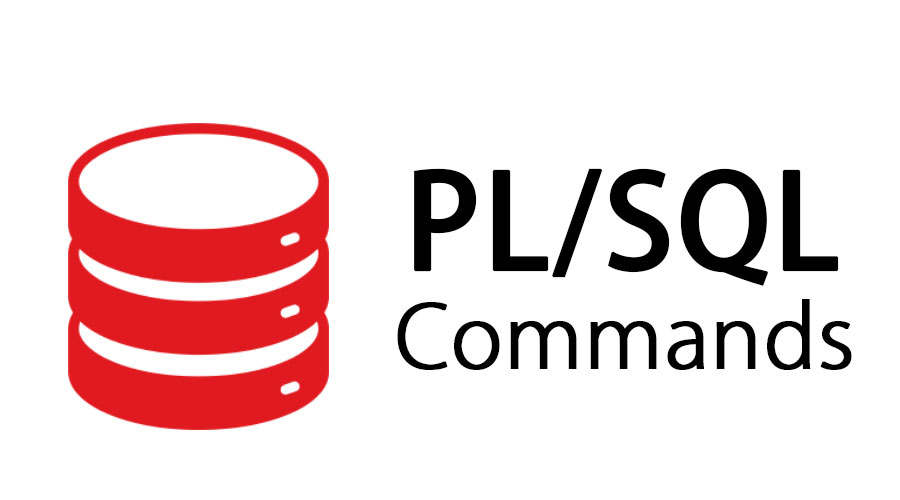PL/SQL (Procedural Language/Structured Query Language) is Oracle Corporation’s procedural extension for SQL and the Oracle relational database. It allows you to write procedural logic, such as loops, conditionals, and functions, directly into the SQL commands. This tutorial will guide you through the basics of PL/SQL with examples.
Table of Contents
- Introduction to PL/SQL
- PL/SQL Block Structure
- Variables
- Control Structures
- IF-THEN-ELSE
- CASE
- LOOP
- WHILE
- Cursors
- Exceptions
- Procedures and Functions
- Packages
1. Introduction to PL/SQL
PL/SQL is a block-structured language. A PL/SQL block consists of three sections:
- Declaration
- Execution
- Exception handling
Here is a simple PL/SQL block that displays “Hello, World!”:
DECLARE
message VARCHAR2(100) := 'Hello, World!';
BEGIN
DBMS_OUTPUT.PUT_LINE(message);
END;
/2. PL/SQL Block Structure
- Declaration Section: This is where you declare variables, constants, and other program constructs.
- Execution Section: This is where the main logic of your program resides.
- Exception Handling Section: This section is used to handle errors that occur during execution.
3. Variables
Variables in PL/SQL are declared in the declaration section. They must have a data type. Here’s an example:
DECLARE
age INTEGER := 30;
name VARCHAR2(50) := 'John';
BEGIN
DBMS_OUTPUT.PUT_LINE('Name: ' || name || ', Age: ' || age);
END;
/4. Control Structures
IF-THEN-ELSE
DECLARE
score NUMBER := 85;
BEGIN
IF score >= 90 THEN
DBMS_OUTPUT.PUT_LINE('Grade: A');
ELSIF score >= 80 THEN
DBMS_OUTPUT.PUT_LINE('Grade: B');
ELSE
DBMS_OUTPUT.PUT_LINE('Grade: C');
END IF;
END;
/CASE
DECLARE
day_number NUMBER := 4;
day_name VARCHAR2(20);
BEGIN
CASE day_number
WHEN 1 THEN day_name := 'Sunday';
WHEN 2 THEN day_name := 'Monday';
WHEN 3 THEN day_name := 'Tuesday';
WHEN 4 THEN day_name := 'Wednesday';
WHEN 5 THEN day_name := 'Thursday';
WHEN 6 THEN day_name := 'Friday';
WHEN 7 THEN day_name := 'Saturday';
END CASE;
DBMS_OUTPUT.PUT_LINE('Day is: ' || day_name);
END;
/LOOP
DECLARE
counter NUMBER := 1;
BEGIN
LOOP
EXIT WHEN counter > 5;
DBMS_OUTPUT.PUT_LINE('Counter: ' || counter);
counter := counter + 1;
END LOOP;
END;
/WHILE
DECLARE
counter NUMBER := 1;
BEGIN
WHILE counter <= 5 LOOP
DBMS_OUTPUT.PUT_LINE('Counter: ' || counter);
counter := counter + 1;
END LOOP;
END;
/5. Cursors
Cursors are used to retrieve data row by row from a result set. Here’s an example:
DECLARE
cursor_name SYS_REFCURSOR;
emp_record employees%ROWTYPE;
BEGIN
OPEN cursor_name FOR
SELECT * FROM employees;
LOOP
FETCH cursor_name INTO emp_record;
EXIT WHEN cursor_name%NOTFOUND;
DBMS_OUTPUT.PUT_LINE('Employee Name: ' || emp_record.first_name || ' ' || emp_record.last_name);
END LOOP;
CLOSE cursor_name;
END;
/6. Exceptions
Exceptions are used to handle errors that occur during execution. Here’s an example:
DECLARE
result NUMBER;
BEGIN
result := 10 / 0; -- This will raise a division by zero error
EXCEPTION
WHEN ZERO_DIVIDE THEN
DBMS_OUTPUT.PUT_LINE('Error: Division by zero');
END;
/7. Procedures and Functions
Procedures and functions are reusable program units that can be called from other parts of your code.
Procedure Example
CREATE OR REPLACE PROCEDURE greet IS
BEGIN
DBMS_OUTPUT.PUT_LINE('Hello, World!');
END greet;
/
-- To execute the procedure
BEGIN
greet;
END;
/Function Example
CREATE OR REPLACE FUNCTION add_numbers(a NUMBER, b NUMBER) RETURN NUMBER IS
result NUMBER;
BEGIN
result := a + b;
RETURN result;
END add_numbers;
/
-- To execute the function
DECLARE
sum_result NUMBER;
BEGIN
sum_result := add_numbers(10, 20);
DBMS_OUTPUT.PUT_LINE('Sum: ' || sum_result);
END;
/8. Packages
Packages are groups of related procedures, functions, variables, and cursors.
Package Example
CREATE OR REPLACE PACKAGE my_package IS
PROCEDURE proc1;
FUNCTION func1 RETURN NUMBER;
END my_package;
/
CREATE OR REPLACE PACKAGE BODY my_package IS
PROCEDURE proc1 IS
BEGIN
DBMS_OUTPUT.PUT_LINE('Procedure 1');
END proc1;
FUNCTION func1 RETURN NUMBER IS
BEGIN
RETURN 100;
END func1;
END my_package;
/
-- To use the package
BEGIN
my_package.proc1;
DBMS_OUTPUT.PUT_LINE('Function Result: ' || my_package.func1);
END;
/This tutorial covers the basics of PL/SQL, including variables, control structures, cursors, exceptions, procedures, functions, and packages. PL/SQL is a powerful language that allows you to create robust and efficient database applications in Oracle.

